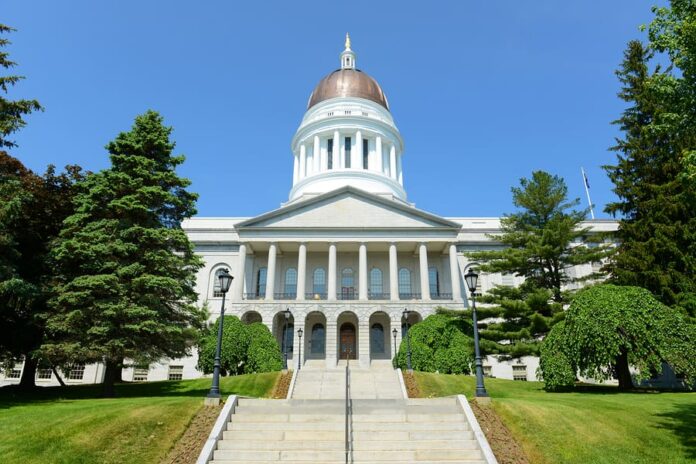U.S. District Court Judge Lance Walker has granted a preliminary injunction blocking Maine’s 72-hour waiting period law for firearm purchases, which was challenged by gun-rights advocates.
The law, passed in 2024 after Gov. Janet Mills allowed it to become law without her signature, required firearm retailers to delay delivery for three days after an FBI NICS background check approval.
“This decision affirms that unconstitutional delays on Second Amendment rights are not permissible,” said Lawrence G. Keane, NSSF senior vice president and general counsel. “Rights delayed are rights denied.”
Judge Walker dismissed Attorney General Aaron Frey’s argument that the Second Amendment does not cover acquiring firearms, calling it “interpretative jui jitsu that would make Kafka blush.”
Plaintiffs include a domestic-abuse survivor and firearm instructor who helps other survivors defend themselves and an FFL forced to delay sales to those facing immediate threats. NSSF supported the challenge, emphasizing that the law emerged after the Lewiston murders due to pressure from gun control groups, despite a state commission finding systemic failures, not gun laws, as the cause of the tragedy.
“(The law) does not purport to be tethered to the time it takes to conduct a background check, or to any other investigatory efforts into whether someone is disqualified from exercising Second Amendment rights,” the lawsuit stated. “To the contrary, it forces law-abiding citizens to wait 72 hours to acquire a firearm even if they pass the requisite background check in a matter of minutes, which most people do.”
Prior to the decision, Nacole Palmer, executive director of the Gun Safety Coalition of Maine, told pressherald.com that waiting periods are both constitutional and make a difference.
“Seventy-two-hour waiting periods have been challenged in many states, and courts have consistently upheld them as constitutional in states across the nation,” Palmer told the news site. “They are, like all of the laws we support, a commonsense measure that saves lives while not impeding anyone’s (Second Amendment) rights.”
Indeed, Palmer is mistaken. There is no historical precedent for waiting periods, which is a crucial element established in the Bruen ruling and essential for adjudicating Second Amendment cases. That’s the primary reason the judge, in this case, likely ruled as he did.
As we have highlighted before, according to a fact sheet on waiting periods from the National Rifle Association’s Institute for Legislative Action (NRA-ILA), there is no evidence that waiting periods reduce suicides, homicides or mass shootings. In fact, no studies identifying causal effects have been recognized by any of the independent literature reviews conducted since 2004.
“Waiting periods are arbitrary impositions with no effect on crime or suicide, introduce no additional investigative avenues and only burden law-abiding gun owners without changing how or when criminals obtain firearms,” the fact sheet states.
Last year, the bill passed the state legislature by the narrowest of margins. The House vote was 73-70. In the Senate, the bill passed 18-17, but only after Democrats used a rarely employed procedural move to count the votes of two absent senators.
Some anticipated that Gov. Mills would veto the bill, while others believed she would sign it into law. Instead, she did neither—an avoidance that permitted the measure to become law without her signature.
Read the full article here


